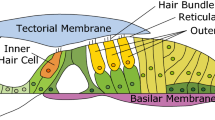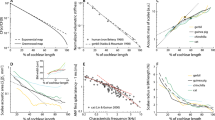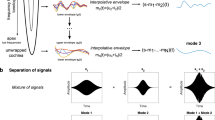Abstract
THE recent publication of Sir Thomas Wrightson's valuable and extensive investigations on the functions of the various parts of the auditory mechanism has brought into prominence a fundamental divergence of opinion as to the place where analysis of the complex sound vibrations occurs and as to the mode of vibration of the basilar membrane. The view of Helmholtz may be said to be that most generally accepted at present. As is well known, this theory states that the basilar membrane responds by resonance in different parts to the component waves of the complex, and that each of these components gives rise to its own sensation on arriving at the brain. The analysis takes place in the cochlea. Sir Thomas Wrightson's theory, which has received the powerful support of Prof. Keith, states that the basilar membrane as a whole follows in its wave form that of the complex, that the form of this complete compound wave is transferred to the nerve-fibres, and that no analysis takes place until the brain is reached.
This is a preview of subscription content, access via your institution
Access options
Subscribe to this journal
Receive 51 print issues and online access
$199.00 per year
only $3.90 per issue
Buy this article
- Purchase on Springer Link
- Instant access to full article PDF
Prices may be subject to local taxes which are calculated during checkout
Similar content being viewed by others
Author information
Authors and Affiliations
Rights and permissions
About this article
Cite this article
BAYLISS, W. The Perception of Sound. Nature 102, 124–125 (1918). https://doi.org/10.1038/102124b0
Issue Date:
DOI: https://doi.org/10.1038/102124b0
Comments
By submitting a comment you agree to abide by our Terms and Community Guidelines. If you find something abusive or that does not comply with our terms or guidelines please flag it as inappropriate.



